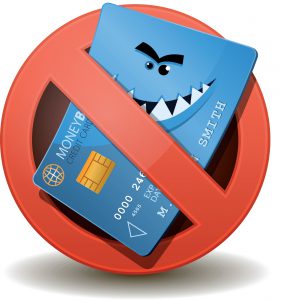 Our credit score is the number that tells others how we manage our money…and it follows us everywhere! Yet, according to Statistic Brain, the average FICO score — one of the most widely used scoring systems — is only 691, well below the level that lenders, landlords, and even employers want to see.
Our credit score is the number that tells others how we manage our money…and it follows us everywhere! Yet, according to Statistic Brain, the average FICO score — one of the most widely used scoring systems — is only 691, well below the level that lenders, landlords, and even employers want to see.
One of the reasons for low scores today is the fact that most consumers are unaware of the actions that will reduce their scores. Here are ten activities to avoid if we don’t want to trash our credit scores:
1. Opening too many accounts — Lenders don’t want to see consumers applying for too many new applications within a one-year time period.
Example: Alicia found this out the hard way. Her score plummeted 50 points just by signing up for three “save 10% if you open an account” ploys when she was holiday shopping.
2. Late payments — Another damaging activity is making late payments. Even paying just a few days late can make a huge difference!
3. Going into default — Taking it one step further, avoid letting any type of debt go into default so it ends up in collection. Yet, this USA Today article highlights the latest study by the Urban Institute which found that nearly one in three Americans have debts in collection. Caution: Not only will letting loans go into default hurt our credit scores, but this NPR report warns consumers that up to 25% of wages can be seized through garnishments, which can be financially devastating to those depending on that income.
4. Failing to remove others from accounts — Often, keeping an ex-partner or spouse on a credit card or mortgage can hurt our credit. Example: Jessie failed to remove her ex-husband, Ben, from her accounts. He made dozens of purchases on an old joint card, which he never paid. Not only was Jessie left to pay $1,890 in charges, the late payments caused her score to drop by 65 points!
5. Co-signing on loans — Co-signing on a loan can be a big risk to those interested in protecting their scores since they have no control over the other person’s financial habits. This is especially problematic for parents or grandparents who are planning their own retirement. Example: Sam and Carla co-signed on a credit card and car loan for their son Toby. When he failed to tell his parents he was 60 days behind on the payments, Sam’s score dropped by 55 points, and Sam is now stuck making his son’s payments of $650/month!
6. The “BIG” actions — Of course, the big hits to a credit score come from actions like foreclosures, bankruptcies, or tax liens (which lead to garnishments), and these negative behaviors can remain on your credit history for up to ten years!
7. The “small” actions — Even unpaid parking tickets, fines at the library, or old utility bills can have an adverse impact on our credit if we fail to pay or resolve them.
8. Always paying cash — Many consumers feel that if they pay cash — or pay the full balance on their outstanding debt every month — it’s a good thing. It is, if we’re being astute in managing our money. But unfortunately, it can actually hurt our scores, or at least prevent them from increasing. Lenders want to see a borrower’s history of making payments on time, so it pays to let a small balance accumulate on a card for a month or two while making timely payments on it.
9. Drowning in debt — Maxing out cards or even using more than 20% — or at most, 50% — of the card’s available balance is another activity that can trash our score. It’s best to keep the outstanding balance (what we owe) less than 20% of the available balance.
10. Closing old accounts — This used to be a good way to increase our credit scores, but that’s no longer true. Lenders want to see that history, so closing old cards can actually lower a score. Caution: Failing to use old cards may lead to lenders closing them. Periodically dust them off to use for small purchases to maintain that history.
Your “secret scores” — In addition to credit scores, MarketWatch reports there are unofficial “secret scores” collected on consumers everywhere. These scores are based on a person’s history of purchases, gambling habits, health issues, banking activity, insurance usage, criminal behavior, housing and evictions, fraud or fraud complaints, and even social media posts, etc. This information is then collected to create a predictive profile of an individual’s behavior and risk potential for employers, banks, insurance carriers, landlords, retailers, etc. So be aware, everything we do that’s “on the grid” has the potential to impact future opportunities.
We hope these strategies help you guard your scores and improve your credit ratings. Please let me know if you need some credit repair strategies, Penny Smart Girl is just an email away!
Feel free to share this information with anyone you think might need the help and leave any comments or questions below for me!
